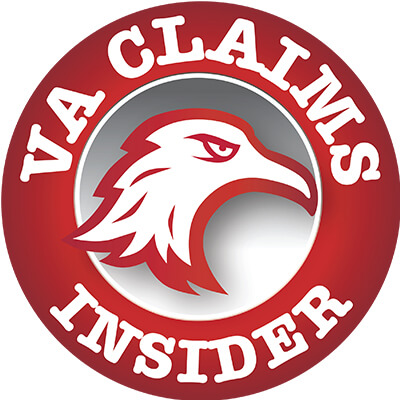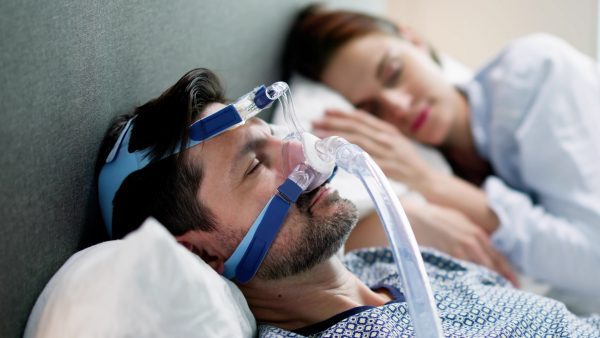Looking for Expert-Level VA Claim Answers?📱Call Us Now! 737-295-2226
At one point sleep apnea was the most prevalent service-connected respiratory disability for which claims were submitted to the VA.
The rate was a staggering 22%.
Concerningly, it is also one of the conditions most rejected by the VA, as the vast majority are regularly turned down. This is because sleep apnea is abnormally difficult to prove as a disability that is service-connected.
In recent years this trend has begun to turn around, but it is still one of the more difficult conditions to win a disability compensation claim for. Therefore you should be well prepared before submitting your claim.
Proving Service-Connection for Sleep Apnea
The first requirement which must be met to satisfy the VA is a sleep study. Even a previous diagnosis may not be accepted by the VA without a sleep study. This is in order to be officially diagnosed.
Once diagnosed the more difficult step is required, which is proving the service-connection for sleep apnea. Sleep apnea can develop for a number of reasons, meaning it can be very hard to pinpoint the exact cause. The VA is also wary of the fact that sleep apnea may well have been a condition suffered by the veteran before their time in the military.
Finally, sleep apnea is a complex condition that can present itself differently in the case of each veteran.
Therefore, records of an in-service injury, illness or other events that could have caused the sleep apnea condition are essential. Along with the record of the potential cause must also be a proven medical link between sleep apnea and the occurrence. This is what is called the Nexus.
Along with a direct Nexus, it is also possible to win a sleep apnea claim by claiming it as a secondary condition. For instance, often sleep apnea presents itself in those who have been suffering from PTSD.
Sleep Apnea Mistakes to Avoid
The biggest mistake most veterans make in their service-connection for sleep apnea claims is in expecting the VA to take them at their word. This means they make their claim without providing much proof. This mistake has led to as much as 76% of sleep apnea claims being rejected (as recently as 2014).
Veterans with CPAP machines have often fallen into the trap of believing that their use of the CPAP will be enough to qualify their claim with the VA. However, this has been thoroughly disproven.
Therefore, because the VA is particularly strict with claims regarding sleep apnea, it is highly recommended that you file your claim with as much evidence as you can obtain.
Don’t make the mistake so many other veterans have.
Sleep Apnea Secondary Claims
While sleep apnea on its own can be difficult to connect, you have the option of connecting it to another condition already claimed.
By showing that the sleep apnea was “proximately caused” or “proximately aggravated by” another service-connected disability you have a better chance of building your claim.
To find the definitive guide for service-connection for sleep apnea, check it out here. Then, watch this video of a former C&P examiner revealing her tips for getting your sleep apnea service-connected!
How to File a Claim for Sleep Apnea
Preparing to Win with the VA
The best way to receive a VA disability compensation rating for sleep apnea is to provide the following information along with your claim:
- Lay AND Medical evidence pointing to the time when the veteran first began suffering from sleep apnea
- The proper medical explanation of the origin of the veteran’s sleep apnea
- Lay AND Medical detailing of the symptoms experienced from sleep apnea affecting the veteran since the onset of the condition in the service until the present day
Conclusion
While the VA has begun to show a greater understanding of sleep apnea in veterans, the hard truth is that the VA has still not proven itself to accept the full range of how sleep apnea can manifest.
Because of this all veterans hoping to receive a disability compensation rating from the VA should take the responsibility of connecting the dots for the claim themselves.
While proving service-connection for sleep apnea claim accepted is no longer as difficult as it once was, it still is wise to not take your chances and get it right the first time.
Make sure to have your sleep study done. Then present the proper records for service connection with a professional opinion on the Nexus of the sleep apnea. By doing this your claim will have the best chance possible.
Many civilian doctors have NO CLUE what a Nexus letter is or the importance of it! Need help claiming this crucial part of your claim? The VA Claims Medical Team specializes in this, sign up here to take the first step in your VA claim! See you on the inside!
Become an Insider
We’re Veterans helping Veterans Worldwide™, and since 2016 we’ve helped 10,000+ Veterans just like you INCREASE their VA disability rating!
About the Author

About VA Claims Insider
VA Claims Insider is an education-based coaching/consulting company. We’re here for disabled veterans exploring eligibility for increased VA disability benefits and who wish to learn more about that process. We also connect veterans with independent medical professionals in our referral network for medical examinations, disability evaluations, and credible independent medical opinions and nexus statements (medical nexus letters) for a wide range of disability conditions.




